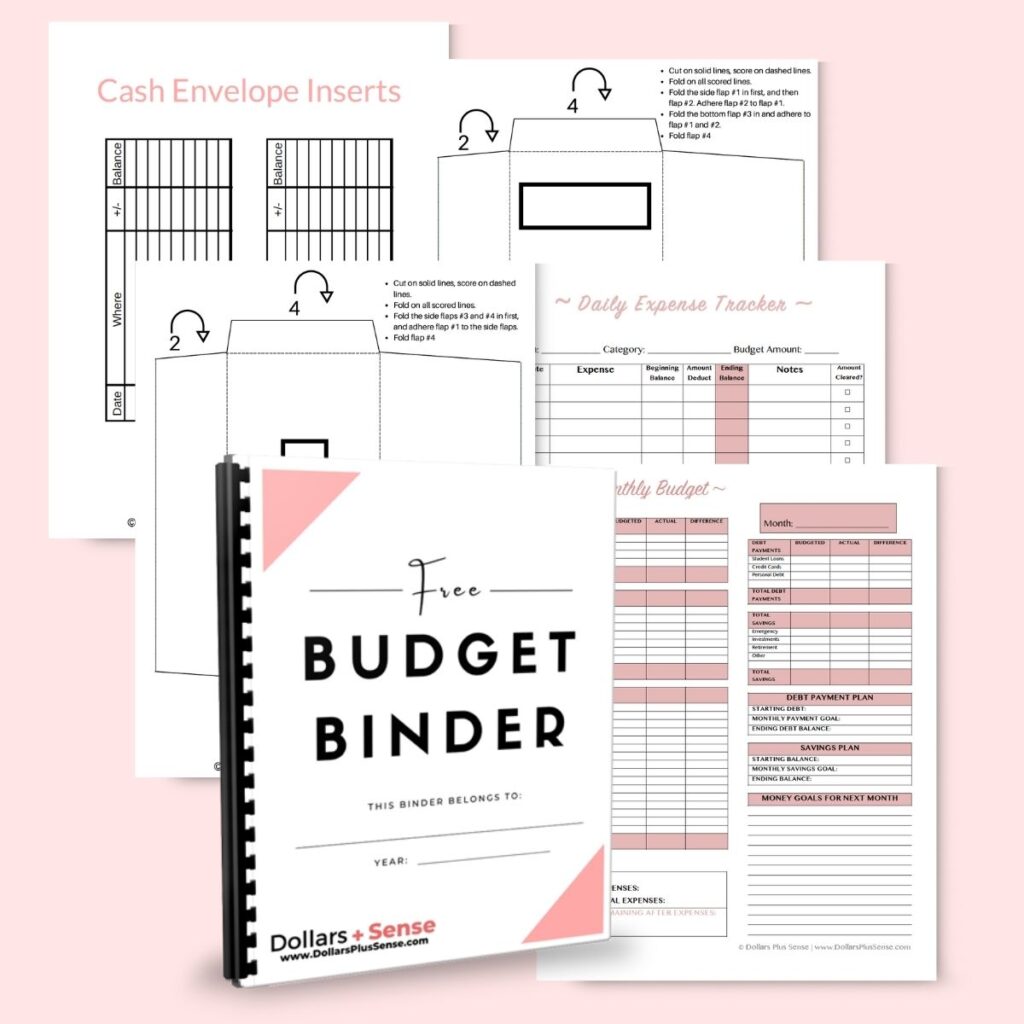Last Updated September 15, 2021
There are many benefits of investing in real estate. Maybe you’re thinking about investing in residential real estate or buying a commercial property? Investing in real estate is a technique that I have used to help me achieve financial freedom more quickly and I think it can do the same for you! Find out the top 10 advantages of investing in real estate today.
What Is Real Estate Investing?
Before we get started with discussing the benefits of investing in real estate, it’s important you understand what real estate investing is. In general, real estate investing refers to any investment that involves buying or renting a property in order to make a profit.
There are many different ways to invest in real estate, some of which include purchasing a property, investing in a rental property, or constructing a building. Real estate investing is usually a great source of long-term wealth creation and that’s why so many people do it.
Why Is Real Estate Such A Great Long-Term Investment Option?
Investing in real estate is a great long-term investment option because it can provide you with regular income every month and the value will most likely appreciate over time. This will grow your wealth over the long term and get you to financial freedom faster.
A property with a regular income is an excellent investment because it will put money in your pocket every month. Real estate investing can be very lucrative, especially if you are able to find a good investment property. When it comes down to it, you want to invest in properties that will generate income and require less maintenance.
Some properties with a regular income include rental homes and apartments, offices, and commercial buildings.
What Are The Benefits To Investing In Real Estate?
There are a number of benefits to investing in real estate. Here are the 10 biggest benefits:
1. Cash Flow/Rental Income
The main reason I got into investing in real estate is I wanted passive income. Your rental properties will work for you even when you are sleeping. The way you get passive income with real estate is through cash flow.
Cash flow is your total rental income minus your total expenses. Ideally, this number should be positive and giving you money every month.
By buying several rental properties that generate enough income to cover your expenses, you have the freedom to do what you enjoy, instead of spending all of your time at work. Therefore, one of the biggest benefits of investing in real estate is it can give you another stream of income outside your earned income.
In my experience, I’ve found that short-term rentals tend to give you an even higher cash flow since you can demand more rent. So if your rental property is in a market that can do well with short-term rentals, consider using a site like VRBO to help you find renters.

2. Properties Appreciate
Another major benefit of investing in real estate is appreciation. Appreciation is the increase in the property’s value over time. Appreciation can also occur by adding value to the property through repairs and enhancements.
Historically, the average annual real estate appreciation rate nationwide has been nearly 6% in recent decades. Of course, the market isn’t the same in every city — but generally speaking, you stand to make money when you’re ready to sell because of appreciation.
For me, this is secondary to cash flow when I look at properties to invest in. I do not purchase a property solely because I think it will appreciate over time. If I am not making money the day I buy the property, I’m not interested in it. If the property appreciates over time, that’s just an added bonus for me.
3. Build Equity And Wealth
One of the benefits of investing in real estate is being able to build equity. As you pay off your mortgage, you build equity because the amount of debt you owe on your house decreases.
A mortgage can be a fantastic way to commit yourself to save because your mortgage payment is a “forced savings.” Each mortgage payment is like making a deposit in the “equity bank” because you’re building up the value of an asset by reducing the amount you owe.
Furthermore, as you build equity, you now have leverage to buy more rental properties and increase your cash flow.
4. Real Estate Leverage
Leverage is the use of borrowed money to increase the potential return of an investment. By utilizing the power of leverage when purchasing real estate, you’re able to increase your rate of return on the investment.

For example, if you purchase $100,000 worth of stock, and your portfolio increased in value by $10,000 in one year, you have a return of 10% on your investment.
However, assume the same $10,000 increase in value, on a house that you purchased for $100,000 with an $80,000 loan and $20,000 cash down payment. Your cash on cash rate of return would be 50%!
As you can see in this example, you’re able to increase the rate of your return 5 times more than had you not used leverage. Because of this, leverage is probably one of the biggest benefits of investing in real estate.
5. Diversify Your Portfolio
As an investor, it is necessary that you have a diversified portfolio. Diversification basically means you don’t have all your eggs in one basket. By spreading out the types of investments you have, it will reduce risk and protect you from the volatility of any one market.
Diversifying your portfolio aims to maximize returns by investing in different things that would each react differently to the same event. So for example, people usually like to invest in stocks and bonds because they normally react differently to the same event.
When stocks go up, bonds usually go down, and when stocks go down, bonds usually go up. Although it does not guarantee against loss, investing in both typically provides protection to your portfolio because when one goes down the other goes up — making it almost impossible for you to lose all your money.
The same concept goes for real estate. Generally speaking, real estate is less volatile than stocks. Therefore, having the right blend of real estate in your portfolio can offer enough diversification to help offset the loss of one single investment.

6. Protects Against Inflation
Inflation is the rate at which the general prices of goods and services rise; and as a result, the purchasing power of money falls. In the United States, the historical average rate of inflation is approximately 3%.
One of the benefits of investing in real estate is because it protects against inflation. As the price of things goes up, so does the rental income you get from your property.
If you notice as a renter, every time you renew your lease, your rent goes up like clockwork. And most landlords will tell you this is attributed to the fact that the cost of living is increasing as well.
This means that real estate investors are protected against both the immediate and the long-term effects of inflation.
7. Increases Your Net Worth And Build Wealth

Did you know, according to a report from the National Association of Realtors, the average homeowner has a net worth that is about 41x greater than that of a renter? That’s because one of the many benefits of investing in real estate is you increase your net worth and generate wealth.
You build wealth through appreciation, building equity, and hedging against inflation. It can also provide cash flow with passive income from your rental properties.
8. Tax Benefits And Deductions
There are many tax advantages to investing in real estate.
For example, there are a number of tax deductions you can take. One tax deduction you can take is depreciation. The IRS uses depreciation to acknowledge that an asset wears down over time.
Even with an increase in the property’s value, the government allows owners a tax deduction of their property over its life span. This “expense” can offset taxable income and save money on your tax bill.
In addition to depreciation, an investor can usually claim the interest portion of her monthly mortgage payment as a tax deduction, as well as other operating expenses and costs.
When you’re finally ready to sell your property, you are required to pay taxes on your capital gains. In general capital gains, tax rates are lower than ordinary income tax rates. Therefore, you would be paying less in taxes than if you were to earn that money.

Lastly, you can avoid paying capital gains tax altogether by exchanging one investment property for another.
As a real estate investor, you can use this tax code called 1031 Exchange to sell a property and use the profit to buy a new one, which is of equal or greater value. This way you can defer paying taxes until that next property is sold or you can opt for another 1031 Exchange.
9. Investing In Real Estate Gives You Flexibility
One of my favorite benefits of investing in real estate is it gives you flexibility. You literally can invest anywhere in the world. You can manage your properties and projects around your schedule and work for yourself. This offers you the flexibility of setting your own schedule.
Also, as you build up your portfolio over time, you can use your rental income as your main source of income — meaning you only work for earned income if you want to. Investing in real estate doesn’t have a salary cap, so your earning potential can be limitless.
10. Real Estate Grants

Finally, one of the benefits of investing in real estate in the United States that many don’t know is the possibility of real estate grants.
Sometimes you can get FREE money to finance your real estate purchase or project through grants. However, not all properties will qualify for real estate grants.
Federal, state, and local governments, as well as many private foundations, provide these funds. As a result, you could get thousands of dollars in free grant money that never has to be paid back.
A good database to browse for grants is http://www.grants.gov. Use the “search” tool to look for grants by keywords. You can also visit HUD’s (US Department of Housing and Urban Development) website to see what grants they have available.
What Are The Advantages Of Investing In Real Estate?
The biggest advantage of investing in real estate is it can help generate income and build wealth over time. Real estate usually appreciates in value over time and is a great way to diversify your portfolio. Finally, it is an asset to pass down to your children to build generational wealth.
What Are Some Disadvantages Of Investing In Real Estate?
I know so far it seems like with all the benefits of investing in real estate this is probably the way to go to grow your wealth. However, there are some cons of investing in real estate that you have to consider.
Some of the cons that many people don’t think about when they want to start real estate investing include:
- You can lose money if you don’t know what you’re doing.
- The property may not be worth as much as the mortgage.
- You can lose money if you end up with a tenant that doesn’t pay rent, left the property damaged when they moved out, or both.
- The property may not stay in good condition if it’s not managed well.
While some gurus promise you can get rich with real estate by borrowing other people’s money, that’s usually not the case (although it IS possible). Realistically speaking, real estate investing will most likely require some of your money.

To get started, you’ll need money for your down payment, plus closing costs, and money to repair or update the property to maximize rental income. There’s a lot to learn when it comes to investing in real estate, and you can lose thousands of dollars if you don’t know what you’re doing.
Tenants can also be a big headache, especially if you have a tenant that’s not paying your rent. In New York, where I invest, the law is very “tenant-friendly” and it can be incredibly difficult to get a tenant out and regain possession of your property.
You need to be able to make monthly payments on your debt despite market dips, tenant problems, property vacancies, unexpected repairs, maintenance costs, and other expenses that are part of doing business when investing in real estate.
Types Of Investment Costs For Real Estate
Now you know there are many benefits of investing in real estate, but it does come at a cost. Here are the costs you should be prepared for if you decide you want to start investing in real estate:

One-Time Costs
- Downpayment
- Lawyer Fees
- Home Inspection
- Appraisal Fees
- Closing Costs
- Title Report/Title Insurance
Ongoing Expenses
- Mortgage
- Property Taxes
- Home Insurance
- Common Charges/HOA fees
- Home Maintenance (grass cutting, snow removal, etc.)
- Utilities (water, sewer, trash, gas, electricity, etc.)
- Home Repairs
- Property Manager (optional)
- Marketing Expenses (advertising or realtor costs to fill vacancies)
As you can see, there are a lot of expenses that you have to prepare for if you want to invest in real estate. You need to know approximately what these costs will be so you can decide if an investment is good or not. Before you invest, do your research in the neighborhood and house you’re interested in.
One tip I want to share with you that can keep your ongoing expenses low is to make sure you get the best rates on home insurance. A tool I like to use to get the best rate and compare top insurance companies is Gabi. With Gabi you can compare multiple offers for coverage all in one place.
What Is The Book That Helped Me Get Started With Investing In Real Estate?

After reading about all the benefits of investing in real estate, you might be excited to get started. However, educating yourself is the most important thing you should do before you start investing. Always crunch your numbers to make sure the deal makes sense.
If you want a little help on how to crunch your numbers, I recommend you read the book “What Every Real Estate Investor Needs to Know About Cash Flow” by Frank Gallinelli. This book is a must-have for any real estate investor and the book that helped me get started with investing in properties.
Also, Biggerpockets.com has some great real estate investment calculators to help you crunch your numbers and decide if a property is a good investment or not.
What Makes A Property Good For A Real Estate Investment?
A good investment property has a steady income, low maintenance costs, and is in an area with steady growth. Start by getting the property for a good purchase price. Do your research and determine what a fair value for the property is.
In my experience, the best real estate investments were properties I could add value to by renovating the property or buying in a neighborhood that’s “up and coming.”
Who Should Invest In Real Estate?

There is no definitive answer to this question. However, you should consider the following factors when deciding whether or not to invest in real estate:
- Your income and what you can afford to invest.
- The amount of money you have saved up for a down payment, closing costs, and possible repairs.
- Your credit and how much you can afford to borrow from the bank.
As I said before, the most important thing you should do is get educated about real estate investing basics before you decide to invest. Read as many books as you can on the topic, listen to real estate investing podcasts, and join a real estate investing group.
What Is The Future Of Real Estate Investing?
What is the future of real estate investing? No one can be certain, but in my opinion, there will continue to be more investors looking to invest in real estate.
With the recent downturn in the stock market, many investors are looking for more stable investments. In addition to this, more people are becoming aware of the benefits of investing in real estate and see this as a good way to make money.
Why Invest In Real Estate Now?

Now that you see the benefits of investing in real estate, I think you should get in the game ASAP. If you are lucky enough to have the financial resources and means to buy real estate, there are loads of opportunities right now for you.
Right now, we are in a buyer’s market and real estate prices are at a low. With the recent COVID-19 pandemic, our economy has really taken a hit. When the economy drops or a recession hits, home values fall. This makes it a great buying opportunity for you.
Now is a perfect time to buy real estate because no one is buying houses. People are trying to hold on to the little money that they do have, and as a result, the prices of houses fall. Interest rates are also lowered to incentivize people to borrow money and buy.
Mortgage rates are now at an all-time low. So what does that mean for you? That means you can buy a house at a large discount and with a low-interest rate.
As time passes, the value of your property will rise back to “normal” and you will be sitting pretty!
Summary
Overall, there are many benefits to investing in real estate. I think real estate is a great investment that can help build true wealth over time. For that reason, consider making real estate a part of your investment portfolio if you hope to be financially free one day.
If you’re saving for your first deal, I recommend you use this FREE Savings Tracker. It’s a great way to visualize your goal so you can work towards it every day
Related Articles:
- 7 Best Ways To Pay Off Your Mortgage Early And Be Financially Free
- Real Estate Investing Guide: 3 Simple Steps To Be Successful
- What Is An Opportunity Zone Fund And How Does It Work?
If you want to remember this article, pin it to your favorite Pinterest board.
















4 Comments on 10 Major Benefits Of Investing In Real Estate From A Pro